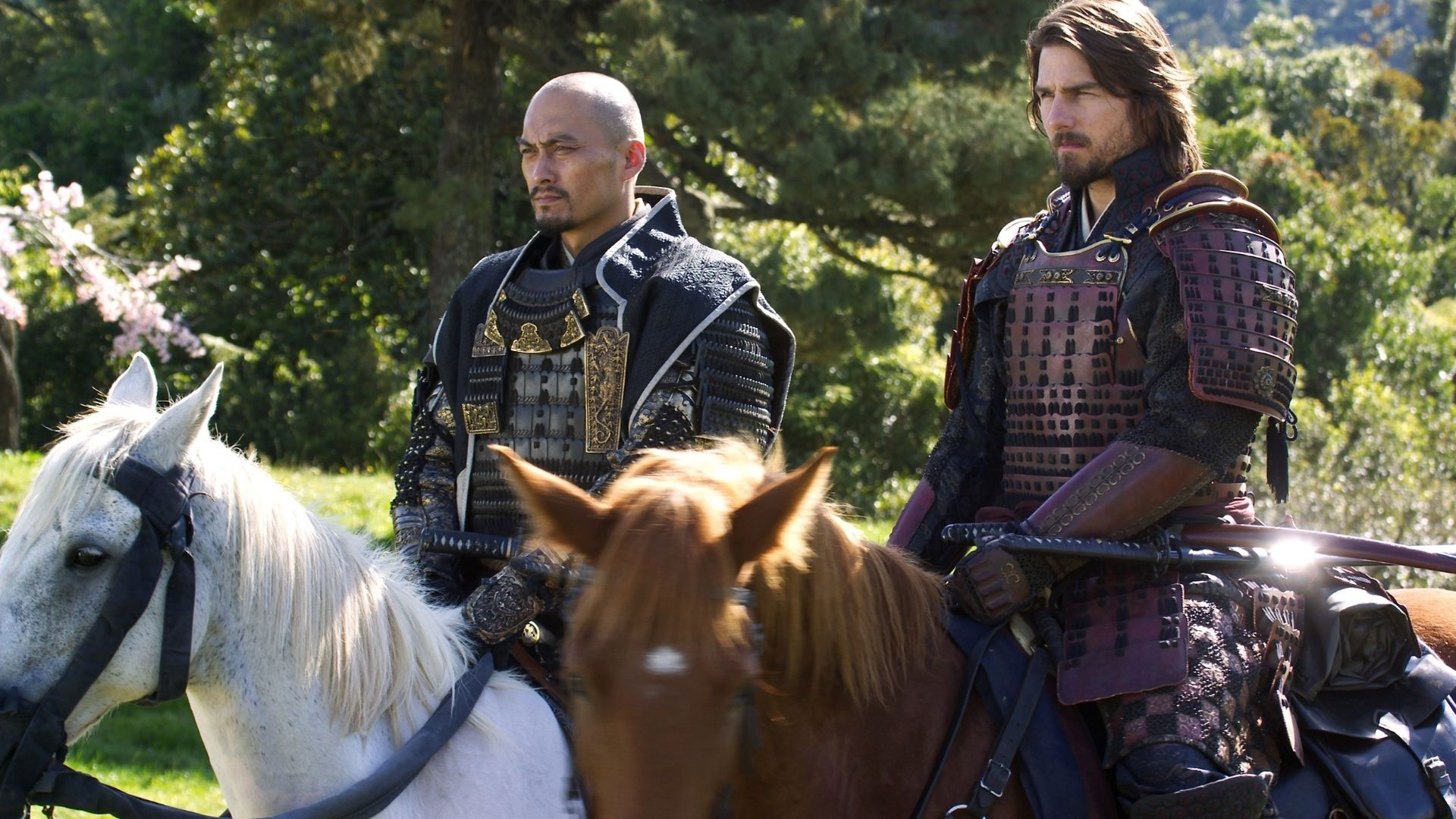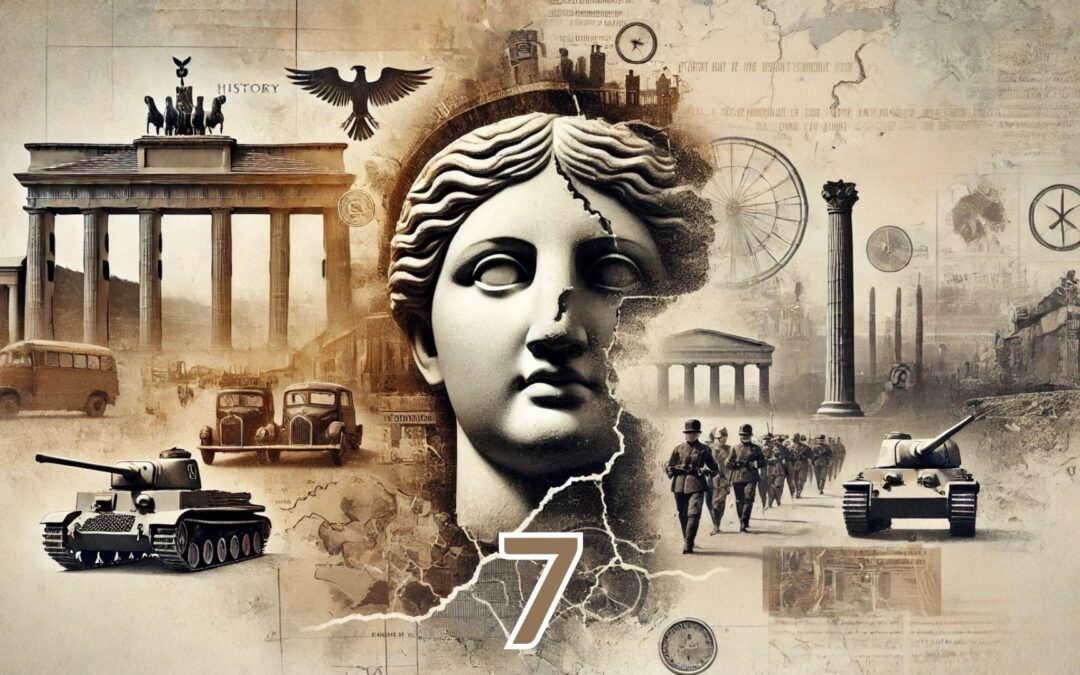Transcript
Transcript
Welcome to a new episode from English Plus Podcast. Today we have a special episode where we will learn English from a great movie by Edward Zwick starring Tom Cruise. Today’s movie is The Last Samurai, a 2003 movie that secured its place on the list of the greatest movies of all time.
But we are not here to talk about the movie as much as we will try to learn English from some of the most important dialogues in the movie. However, first let’s introduce the movie, especially for those of you who haven’t seen it before, which I highly recommend you do. It is a movie you will never regret watching. Don’t worry; there are no spoilers here, I’m just going to tell you about the story of the movie in general without giving away too much of the story.
In the 1870s, Captain Nathan Algren (Tom Cruise), a cynical veteran of the American Civil War, who will work for anyone, is hired by Americans who want lucrative contracts with the Emperor of Japan to train the peasant conscripts for the first standing Imperial Army in modern warfare using firearms. The Imperial Omura cabinet’s first priority is to repress a rebellion of traditionalist Samurai, hereditary warriors, who remain devoted to the sacred dynasty, but reject the Westernizing policy, and even refuse firearms. Yet, when his ill-prepared superior force sets out too soon, their panic allows the sword-wielding samurai to crush them. Badly wounded, Algren’s courageous stand makes the samurai leader Katsumoto (Ken Watanabe) spare his life. Once nursed to health, he learns to know and respect the old Japanese way and participates as advisor in Katsumoto’s failed attempt to save the Bushido tradition, but Omura gets repressive laws enacted. He must now choose to honor his loyalty to one of the embittered sides when the conflict returns to the battlefield.
So, if you want to know what will happen, you will need to watch the movie, but now let’s focus on a couple of important dialogues in the movie and try to learn some useful English from them.
We will start with a dialogue between Captain Algren and Katsumoto after they thwarted a ninja attack trying to assassinate Katsumoto. Katsumoto summons Captain Algren and they talk before they return the next day to Tokyo. What we will focus on in this dialogue is the use of the present perfect as we just talked about it this week in English Plus podcast and because there are some very good examples of the present perfect in this dialogue. I will be role playing this dialogue with Ben so that you can have a sense of two people talking to each other. Captain Algren arrives and Katsumoto starts talking as he was admiring the blossoms announcing the coming of spring.
Katsumoto: The perfect blossom is a rare thing. You could spend your life looking for one, and it would not be a wasted life.
Cpt. Algren: Who sent those men to kill you?
Katsumoto: I’m writing a poem about a dream I had.
The tiger’s eyes are like my own
But he comes from across
A deep and troubled sea
Cpt. Algren: Was it the emperor? Omura?
Katsumoto: If the emperor wishes my death, he has but to ask.
Cpt. Algren: So it was Omura.
Katsumoto: I’m having trouble finishing the poem. Can you suggest a last line?
Cpt. Algren: I’m not a writer.
Katsumoto: Yet, you have written many pages since you came here.
Cpt. Algren: What else has she told you?
Katsumoto: You have nightmares.
Cpt. Algren: Every soldier has nightmares.
Katsumoto: Only one who is ashamed of what he has done.
Cpt. Algren: You have no idea what I have done.
Katsumoto: You have seen many things.
Cpt. Algren: I have.
Katsumoto: And you do not fear death, but sometimes you wish for it. Is this not so?
Cpt. Algren: Yes.
Katsumoto: I, also. It happens to men who have seen what we have seen. And then I come to this place of my ancestors…and I remember. Like these blossoms… we are all dying. To know life in every breath…every cup of tea…every life we take. The way of the warrior.
Cpt. Algren: Life in every breath.
Katsumoto: That is Bushido.
Cpt. Algren: Hai
Katsumoto: The emperor has granted a safe passage to Tokyo. We leave tomorrow.
Cpt. Algren: Good.
Katsumoto: Good. When I took these, you were my enemy.
So that was one of the many beautiful dialogues in the movie. However, let’s focus on the places where they used the present perfect.
We have the first example when Katsumoto said, “you have written many pages since you came here,” we can see here the use of since to talk about something that started to happen in the past and still continues to the present and that is one main use of the present perfect. “You have written many pages since you came here,” the writing part started from the moment Captain Algren came to Katsumoto’s village and still continues to the present, so we use the present perfect.
Now the other examples of the present perfect in this dialogue focus on mentioning something that happened in the past without specifying the time it happened in the past and that is another common use of the present perfect.
We have many examples of this use, like
Cpt. Algren: What else has she told you?
Katsumoto: Only one who is ashamed of what he has done.
Cpt. Algren: You have no idea what I have done.
Katsumoto: You have seen many things.
Cpt. Algren: I have.
Katsumoto: I, also. It happens to men who have seen what we have seen. And then I come to this place
Katsumoto: The emperor has granted a safe passage to Tokyo. We leave tomorrow.
So that was our first dialogue for this episode. Before we continue and talk about the second dialogue, let me remind you that you can find the show notes, exercises, PDF practice worksheets for the episodes we release everyday on English Plus Podcast on our website, https://englishpluspodcast.com You will find the link in the description of the episode.
Also, if you like the content we’re creating and you would like to support us to create more of the content you love, you can take the other link in the description of this episode that will take you to our Patreon page. You can support English Plus Podcast by becoming a patron of the show and help us create more episodes and reach more people.
Now with that being said, let’s move on and talk about the second dialogue for this episode from The Last Samurai.
This dialogue takes place after Algren and Katsumoto return from Tokyo with the Imperial Army on their tail. Captain Algren scouting the Imperial army starts discussing with Katsumoto.
Cpt. Algren: I’d say two full regiments. They’ll come in waves of a thousand. And they have the howitzers.
Katsumoto: It makes no difference. They will come, and we will make our stand.
Cpt. Algren: How many men will we have?
Katsumoto: Maybe 500. Like General Custer, huh?
Cpt. Algren: There was once a battle at a place called Thermopylae. Three hundred brave Greeks held off a Persian army of a million men. A million. You understand this number?
Katsumoto: I understand this number.
Cpt. Algren: For two days the Greeks made them pay so dearly, the Persian army lost all taste for battle and were defeated soon after.
Katsumoto: What do you have in mind?
Cpt. Algren: Take away the advantage of their guns. They’re overconfident. We’ll use that. Lure them close. Close enough for a sword.
Katsumoto: You believe a man can change his destiny?
Cpt. Algren: I think a man does what he can until his destiny is revealed to him.
Cpt. Algren: May 25th, 1877. This will be the last entry in this journal. I’ve tried to give a true accounting of what I have seen, what I have done. I do not presume to understand the course of my life. I know I am grateful to have partaken of all this, even if for a moment.
So that was another great dialogue from The Last Samurai before the final battle. In this dialogue, I will focus on some keywords and we will see what these words mean.
The first word is regiment when Captain Algren said, “I’d say two full regiments. They’ll come in waves of a thousand. And they have the howitzers.”
A regiment is a large group of soldiers that is commanded by a colonel.
And there is the word ‘wave’ in this context, a wave is a large number of people moving somewhere at the same time.
Next, we have an interesting phrase when Katsumoto said, “It makes no difference. They will come, and we will make our stand.”
To make a stand is to take a position for defense or opposition.
Then we have a phrasal verb when Algren was talking about the battle of Thermopylae, he said, “Three hundred brave Greeks held off a Persian army of a million men.”
The phrasal verb is obviously ‘hold off’. If you hold off a challenge in a race or competition, you do not allow someone to pass you.
Then we have two phrases when Algren said, still talking about the battle of Thermopylae, “For two days the Greeks made them pay so dearly, the Persian army lost all taste for battle and were defeated soon after.”
The first phrase is made them pay so dearly; pay here is used in a very special meaning, If you make someone pay, you punish them or make them suffer the consequences of their actions.
The second phrase is lost all taste for battle; If you lose all taste for something, you are not excited to do it anymore, or you simply don’t want to do it anymore because you are disheartened or demoralized.
Next, Algren said, “Take away the advantage of their guns. They’re overconfident. We’ll use that. Lure them close. Close enough for a sword.”
First, we have take away, If you take something away from someone, you remove it from them, so that they no longer possess it or have it with them.
And we have the word ‘overconfident’; to be overconfident is to be confident without adequate reason or simply to be too confident, which usually leads to your underestimating your opponents.
And we also have here the word ‘lure’; to lure someone means to trick them into a particular place or to trick them into doing something that they should not do.
And finally, Algren said, “I do not presume to understand the course of my life. I know I am grateful to have partaken of all this, even if for a moment.”
We first have the expression we usually use to talk about the sequence of events in someone’s life and we use the course of his or her life, here Algren was saying that he may not understand the progression of events in his life and he used the expression ‘the course of my life’ to mean that.
Then for our final word for this episode, we have the word ‘partaken’, which is the past participle of the verb ‘partake’; If you partake in an activity, you take part in it.
I hope you have enjoyed this episode and you have learned some English in the context of famous movies. This is a new type of episode we are trying out, please let us know if you like it, and of course, you can reach out any time you like to tell us about what you like or dislike in our episodes. We would love to hear from you and we promise to be responsive and listen to what you have to say. We can only grow together. If you don’t like what we are doing and if you don’t benefit from it, none of what we do matters.
With that being said, this will be all for this episode. I would like to thank you very much for listening to another episode from English Plus Podcast. This is your host Danny. I will see you next time.








0 Comments